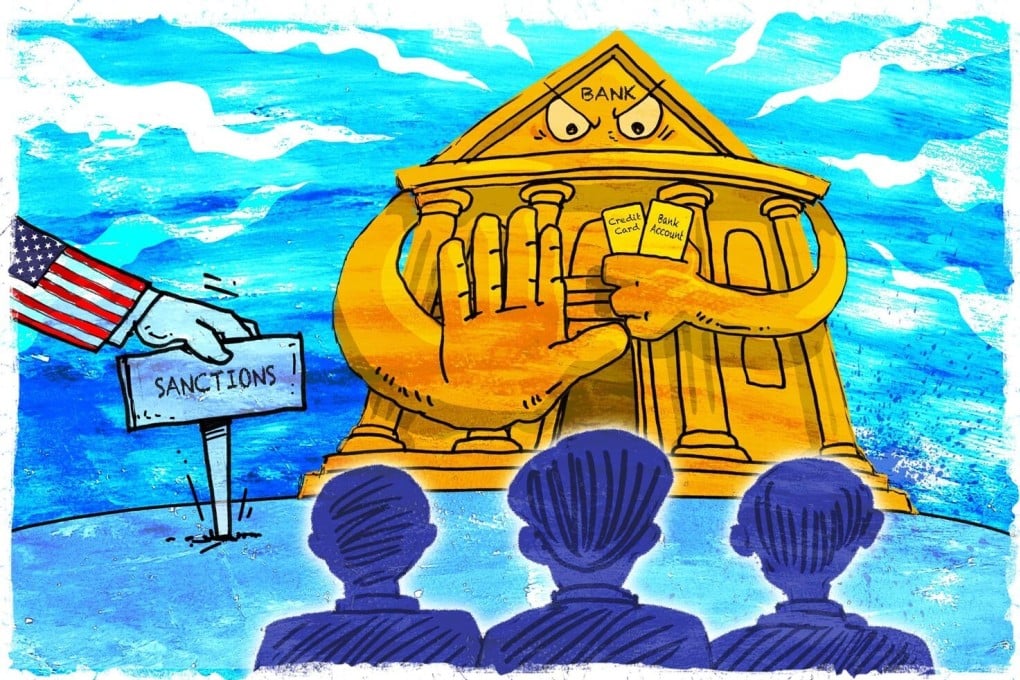US sanctions will make everyday life a headache for Hong Kong’s political leaders and their families, from closed accounts to blocked payments
- Sanctions can lead to bank account closures, credit card cancellations, compliance officials say
- Banks wary of running afoul of US regulators, losing access to American financial system

But, the long reach of the American government – and the dominance of the US dollar as a trade currency – could throw up an array of unexpected barriers for so-called specially designated nationals (SDNs), according to former American officials and compliance lawyers.

02:02
US sanctions over national security law an ‘inconvenience’, says Hong Kong leader Carrie Lam
Sanctioned individuals – and in some cases their close family members – could find overseas bank accounts closed, bank-issued credit cards cancelled and insurance coverage put on hold by financial institutions wary of running afoul of US regulators and losing access to the American financial system, compliance officials said.
Transactions with US companies, including ordering from American websites such as Amazon.com, are likely to be blocked and even booking a staycation at a US-owned hotel chain could prove difficult, if not impossible, depending on how the company’s foreign subsidiaries are structured, said Julia Friedlander, deputy director of the Atlantic Council, a Washington think tank.
“What that does is pushes an individual out of the US dollar system,” Friedlander, a former senior policy adviser in the US Treasury Department’s Office of Terrorism and Financial Intelligence, said. “If they want to conduct payments, they’re going to have to do so using financial institutions that are cut off from the US financial system and largely will not transact in dollars.”

03:08
US sanctions 11 Hong Kong and mainland officials including Hong Kong’s chief executive Carrie Lam